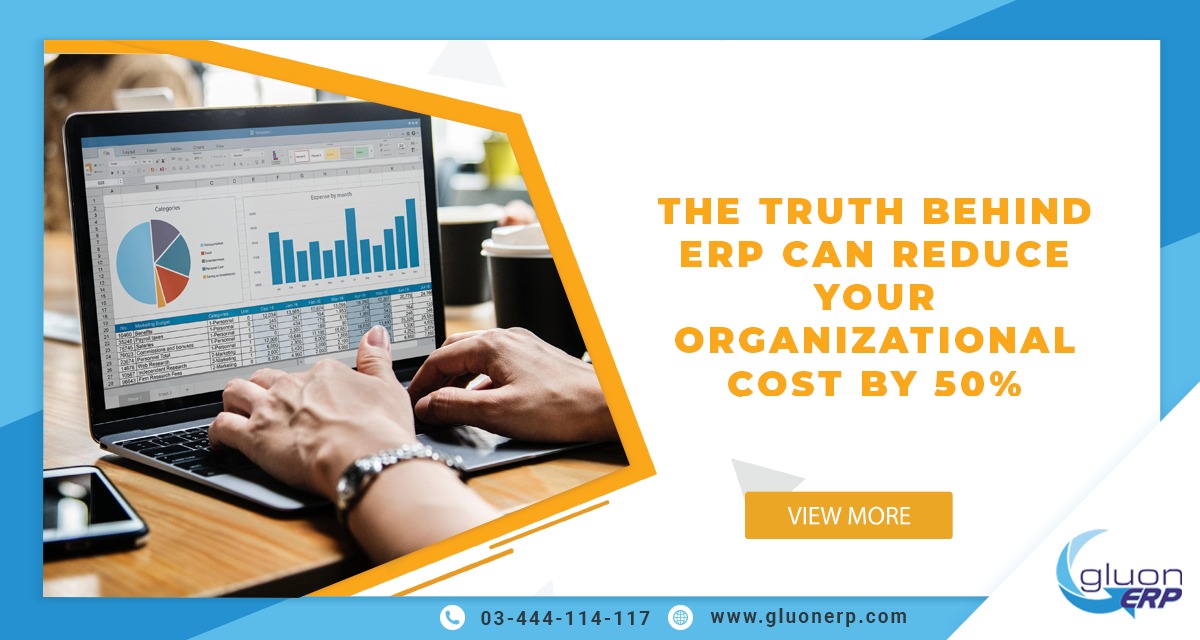
Whether ERP can reduce an organization’s costs by 50% depends entirely on the organization under consideration. However, whether ERP can reduce an organization’s costs is a question that can almost always be answered in the affirmative.
The very nature and purpose of an ERP implies that costs will decrease. What difference an ERP makes in any organization can be discussed in great lengths, but is briefly discussed here in terms of the major ways in which the ERP has an impact.
Integrated Solution
ERP is generally implemented as an integrated solution. On the one hand, it is modular in nature in alignment with organizational functions and departments and on the other hand, it is finely and seamlessly integrated across all modules in the good scenarios of an efficient ERP. This, in turn, implies that every penny spent and every item bought can be accounted for. An organization having such a system supporting all its processes is bound to become greatly efficient and cost effective.
Centralized Data
ERPs are architecturally designed to hold single source of truth for all information stored in it. The data is centralized and conveniently accessible to all the relevant modules. Such a system design eliminates data duplication and mismatch and thereby greatly reduces that chances of errors in reconciling. Imagine the reduction in effort that would otherwise be spent in ensuring data integrity and the losses that could be incurred if the data inaccuracies and mismatch was present.
Greater Accuracy
Computers are mathematical machines and inherently provide a great amount of accuracy in the data collected and calculated. The human error here remains as the main source of error, which can also be minimized using various techniques and technologies at the input interfaces. Hence increased accuracy corresponds to a reduction in costs.
Automated Processes
By introducing an ERP in the company, the processes which involved filling out forms and physically carrying them over from one desk to another or from one department to another are carried out in the ERP system which is well integrated. It means that there is a reduction in the required human resource and automation of the processes whereby, the information travels electronically and instantaneously. This is a huge factor of efficiency in the overall process.
Improved Inventory Management
When the inventory is managed in the ERP, all relevant stakeholders can have real-time and accurate visibility of the stock status. It means that the inventory can be kept leaner and at the same time almost filled most of the time. Automation mechanisms can make sure that any inventory depletion is countered by immediate further requisition.
Enhanced Customer Service
A happy customer base means a flourishing business. What more could you want? With well-integrated CRM module, the customer has direct access to vendor for ordering, queries and complaints. At the same time, the customer can be made specifically aware about their liabilities with regards to the orders.
Managed Growth
ERPs are designed to be modular and seamlessly scalable. It means that the ERPs can be tailored to the specific customer needs at all times. This also means that the ERP can be extended and enhanced with the passage of time as the company business grows and their customer base and supply chain increases.
Informed Decision Making
Analytics and Business Intelligence tools are an important part of an ERP because the ERP is in fact a business tool. It is a tool that keeps the complete business manageable, efficient and in control. Information from every single transaction can bubble up to provide a holistic view of the complete business, which is fact based and provides crisp and clear visibility on the status at any given time. Data-driven and evidence-based decision making is the key to business efficiency, sustainability and eventually growth.
Conclusion
Whether a business is small, medium or large, ERP will always make a huge positive impact towards its efficiency, performance and accuracy. With all above said, what will make an even greater impact is the implementation of the ERP on a cloud platform because it slashes the Total Cost of Ownership by a huge margin.




Comments